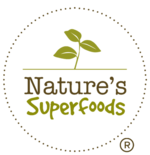-
No products in the cart.
Essential Nutrients for Pregnancy

Written and Edited by: Nature’s Superfoods Team
Having a healthy diet before conception and throughout pregnancy is not only beneficial for your health, but also optimises the growth and development of your baby. Generally, your energy requirement increased by about 300 kcal daily and you would have higher requirements for other nutrients such as Folate, Iron, Vitamin B12, Omega-3 and Vitamin A than in the non-pregnancy state.1
1. Folate
Folate is a type of Vitamin B that is imperative for cell division and organ formation. In particular, it helps to lower anaemia in pregnant ladies and prevent neural tube defects (i.e. malformations of the brain and spinal cord) in your developing baby.2 Generally, it is strongly advised to have at least 800 micrograms daily before conception and throughout the first three months of pregnancy.1 Aside from supplements, Folate can also be obtained from natural sources such as dark green vegetables, whole grains like amaranth & quinoa, nutritional yeast, eggs, legumes and mulberries. As Folate is very vulnerable to heat, it is important to avoid overcooking.
2. Iron
Iron is needed for the formation of red blood cells, which is particularly important due to the increase in blood volume to accommodate the changes during pregnancy. Though heme iron which can be obtained from animal sources (e.g. meat, liver, fish, etc) is better absorbed by the body than non-heme iron (e.g. green leafy vegetables, sacha inchi seeds, dried fruits such as mulberries, apricots), absorption of non-heme iron can be easily enhanced by consuming Vitamin C-rich foods (e.g. citrus fruits, goji berries, camu-camu berry powder, etc) during the same meal.3
Aside from promoting the absorption of non-heme iron, Vitamin C is essential for the formation of collagen in bones, muscles and blood vessels.
3. Vitamin B12
Vitamin B12 is essential for blood formation and can be found generally in animal sources such as meat, poultry, fish, milk and eggs. Nonetheless, it can also be found in plant-based sources such as nutritional yeast.1
4. Omega-3
Based on research, pregnant ladies who consume cold water fishes have babies with higher IQ and better vision than pregnant ladies who do not. However, as large deep-sea fishes contain methyl mercury, which is a type of heavy metal that is toxic to the developing foetus’s neurological system, it is recommended to consume not more than 3 servings of a variety of cooked fish/shellfish per week and should avoid shark, swordfish, batang fish and white snapper. For an alternative source of omega-3 fatty acid, consider plant sources such as chia seeds, sacha inchi oil or consult your doctor to recommend a suitable supplement.1
5. Vitamin A
Though Vitamin A is essential to promote growth of cells & tissues and prevent night blindness, it is important to note that excessive consumption of Vitamin A (i.e. above 10,000 IU daily) in the first trimester can cause birth defects. Hence, pregnant ladies should consume their Vitamin A from food (e.g. milk, yoghurt, cheese, eggs, apricots, sacha inchi seeds, dried figs, goji berries, incan golden berries, etc) rather than from supplements.1
Conclusion
Aside from ensuring that you obtain adequate nutrients to improve your health and optimise the growth and development of your baby, it is also recommended to avoid unpasteurised milk, soft cheese (e.g. brie, feta, etc), uncooked/undercooked food to reduce the risk of bacteria food poisoning which may result in miscarriage and stillbirth.
References
1. Ministry of Health Singapore. 2021. Nutrition during pregnancy – Eating right for two
2. Centers for Disease Control and Prevent. 2021. Folic acid.
3.World Health Organizaion. 2021. Daily iron and folic acid supplementation during pregnancy.

